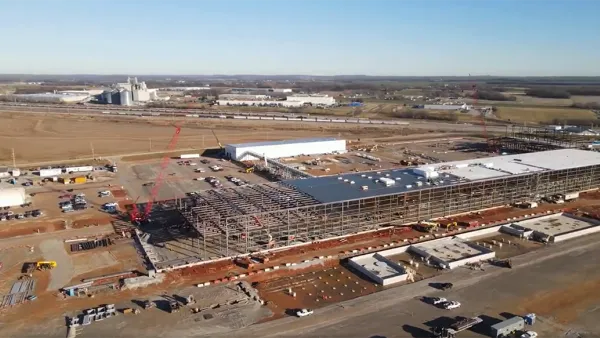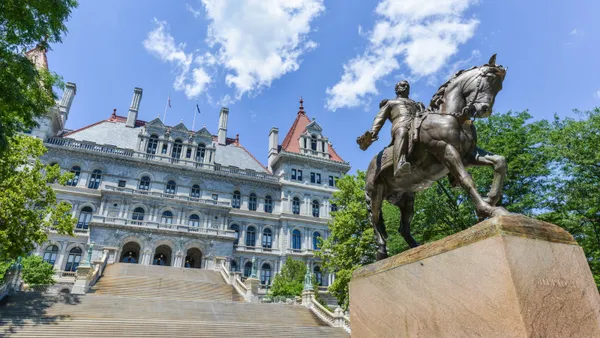Editor's note: This story includes imagery and references to racial slurs that could be disturbing to readers.
Dive Brief:
- Four Black construction workers in the escalator and elevator division of Mitsubishi Electric US are suing the company in California Superior Court for allegedly allowing their supervisors to harass them with racial slurs and images and discriminate against them when it came to opportunities for training, higher pay, overtime and advancement in their careers.
- The four men claim that in addition to the race-based harassment and discrimination they endured on jobsites in the San Francisco Bay Area, complaints made to Mitsubishi's human resources department beginning in 2016 went largely unaddressed for years. When a few of the employees committing the acts were finally disciplined, the plaintiffs allege, the company did nothing about ongoing similar behavior, and inaction on the part of Mitsubishi fed a hostile work environment, they said.
- The plaintiffs are seeking monetary damages and want the court to order Mitsubishi to better train employees about race discrimination, harassment and retaliation; conduct more thorough investigations into such incidents; and to "take effective remedial action" to address racist acts and graffiti at the company's project sites.
Dive Insight:
In addition to the plaintiffs’ written allegations, the papers filed with the court include photographs of racist images, objects and graffiti reportedly found at Mitsubishi projects. Some of the allegations in the suit are:
- Supervisors referred to plaintiffs as "undesirables," "lazy" and with the N-word, as well as joking about lynching.
- Visual images of "the N-word, KKK, swastikas, black monkeys and Satanic stars" appeared around various jobsites.
- A noose was placed on a barricade next to one of the plaintiff's assigned elevators.
- Supervisors assigned the plaintiffs to menial tasks and made them helpers to less experienced White workers despite the plaintiffs being skilled workers.
- One of the men suffered a stroke allegedly due to the stress caused by discrimination and harassment and was fired while recovering at home.
In response to a request for comments about the lawsuit, Michael Corbo, chief operating officer at Mitsubishi, based in Cypress, California, issued the following statement to Construction Dive:
"Mitsubishi Electric US embraces diversity and inclusion. Some very serious allegations have been made against our company, and while we are unable to comment on the specifics of this case because of employee privacy rules, what we can say is this: Our company previously investigated all complaints these employees raised and took prompt action as appropriate.
"Mitsubishi Electric US does not tolerate harassment, discrimination or retaliation. We have strong policies and practices against harassment, discrimination and retaliation and provide regular training on those policies and practices. We encourage employees to report issues immediately. We investigate those issues thoroughly."
The construction industry has been confronted with the racial turmoil that has dominated the American landscape this summer. With reports of nooses and offensive graffiti being placed in eyeshot of targeted workers, contractors have found themselves having to deal with an extra layer of issues at the same time as the global COVID-19 pandemic has stalled some projects and put the future of others in jeopardy.
Turner Construction Co. has emerged as a leader in this area, shutting down projects if necessary to conduct anti-bias training. Even though Turner has been aggressive about preventing such conduct on its jobsites, president and CEO Peter Davoren told Construction Dive last month that the company receives three or four reports a week of racist graffiti or some other race-based incident.
In a case with similar undertones to the Mitsubishi lawsuit, a California electrical subcontractor, Air Systems, Inc. (ASI), agreed last month to pay $1.25 million to settle a U.S. Equal Employment Opportunity Commission (EEOC) lawsuit alleging that eight African-American employees were subjected to race discrimination while working on a construction project at Apple Park, Apple's corporate campus in Cupertino, California.
The workers encountered racial epithets, a noose at the worksite and a threat of lynching, according to EEOC. In addition, the company failed to act when notified by two Black employees that a White coworker had taunted them with racial pejoratives, the EEOC said.













